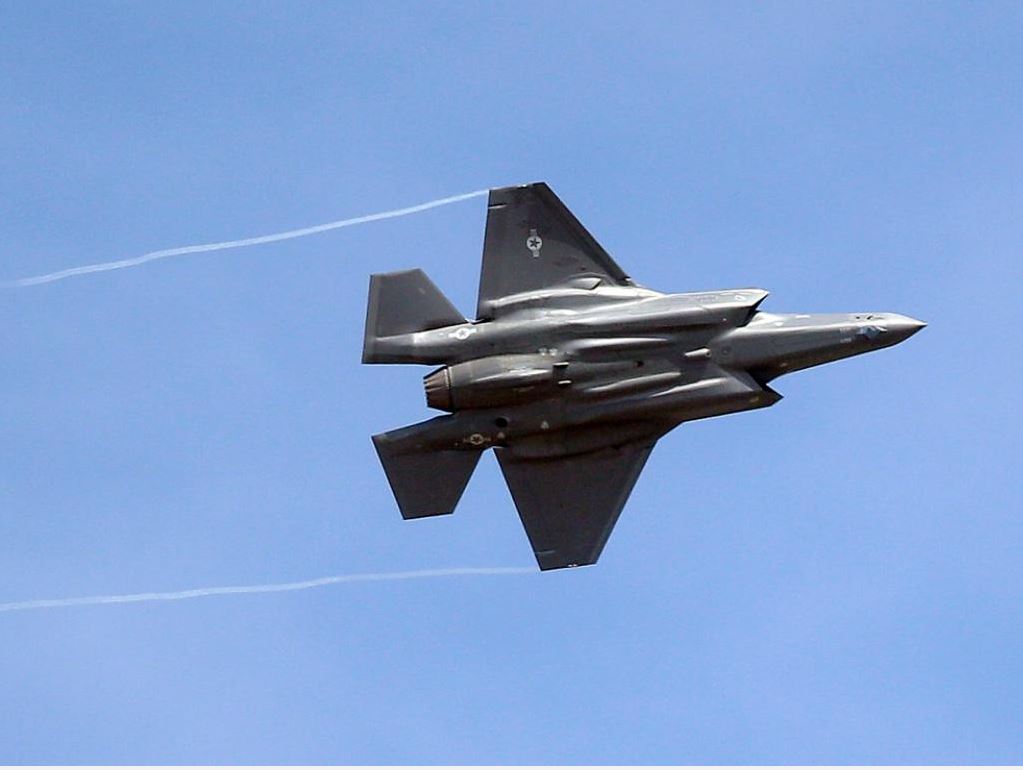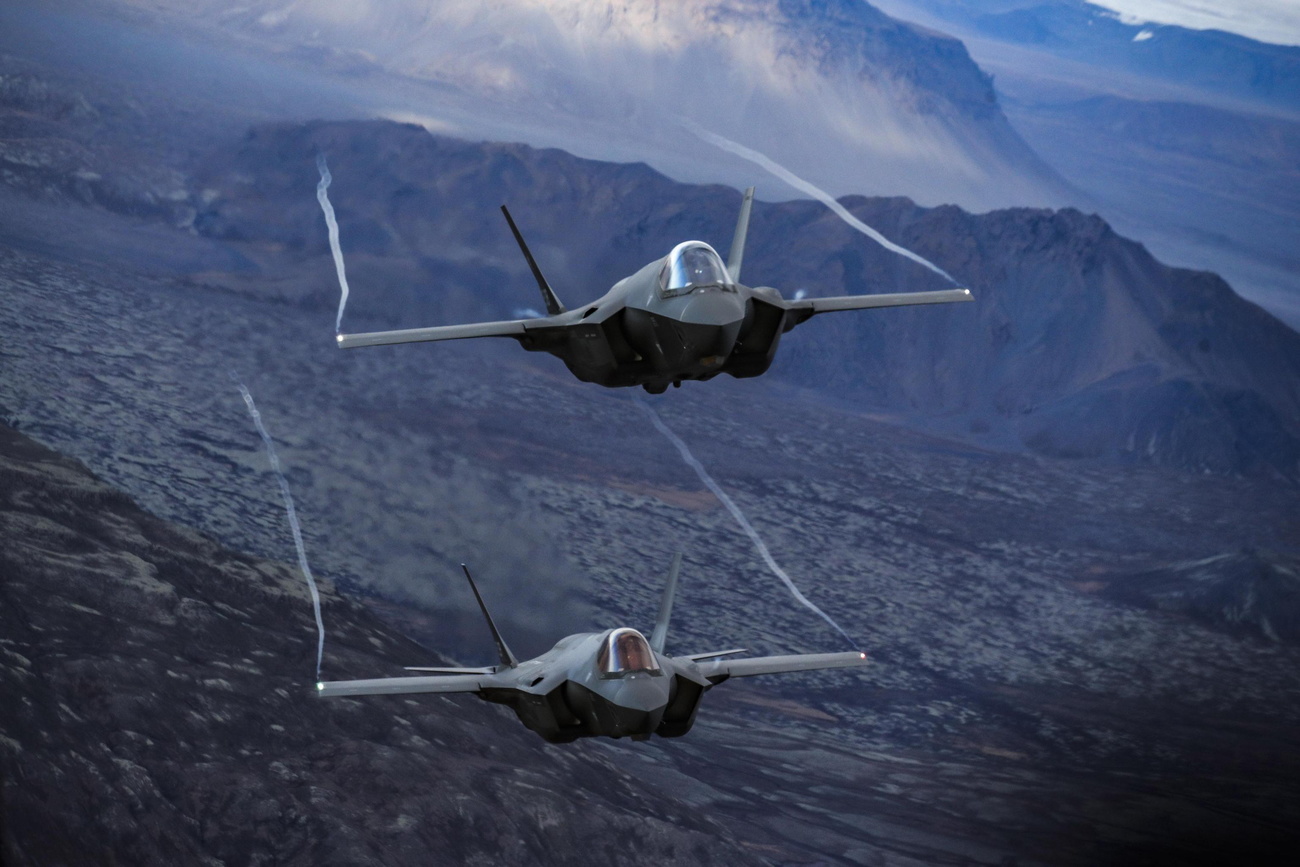
‘EU-Swiss relations have sunk to their lowest point since 1992’

The Swiss government’s decision to buy 36 F-35A fighter jets from the US rather than from Europe follows the collapse of its framework agreement with the European Union. In an interview with SWI swissinfo.ch, European expert Gilbert Casasus stresses that Switzerland’s relationship with the EU had sunk to its lowest point since 1992.
Gilbert Casasus, professor for European Studies at Fribourg University in Uechtland, has expressed his concern that Switzerland could fall into disrepute with its European neighbours.
SWI swissinfo.ch : The Swiss government has emphasised that the decision to purchase the F-35A jets was not a political one and that it was solely based on getting the best value for the money. However, is it possible to make an “non-political” decision when it comes to buying fighter jets?
Gilbert Casasus: This might sound like a fairy tale, but it is much different from the one where the Swiss football team beat France in the 2021 European Championship. The Federal Council’s fairy tale has a darker ending.
SWI: How come?
G.C: The purchase of arms and related products has a political connotation all over the world, and it was not by chance that the Swiss government opted for a US fighter jet instead of a European one. It is a direct result of the political decision of 26 May 2021 to terminate the negotiations on a framework agreement with the EU. In a way, the decision to purchase the US-made fighter jet is the sequel to the collapse of the framework agreement with the EU.

SWI: Critics have expressed their concerns that the US secret services have access to the F-35A’s communication systems. Will Swiss independence and neutrality still be guaranteed?
G.C: Purchasing a new fighter jet or other military equipment is never neutral, which means that buying a European model would not have been neutral either. Neutrality never plays a role in such deals, simply because it would be an oxymoron to do so. The fact that the Federal Council wanted to remain true to its line of fighter jet was much more crucial in this decision. This, however, has caused EU-Swiss relations to sink to their lowest point since the Swiss voted against joining the European Economic Area (EEA) in 1992.
SWI: Germany was very disappointed that the Eurofighter was not considered. It is joint project of a consortium of aerospace and defence companies from the UK, Germany, Italy and Spain. Has Switzerland missed the chance to strengthen its ties with the EU by not purchasing a European aircraft?
G.C: I have two theories on this: if Switzerland had opted for the European jet, it would have sent a sign that it sought to maintain its good relations with Brussels and the EU. However, there is no common policy on the production of fighter jets in Europe, and the individual countries are fiercely competing with each other. A recent example is the German-French collaboration to develop a fighter jet by 2040. The project is currently being held up by Germany. The two countries are struggling with some major differences. On the one hand, France and its President Emmanuel Macron are pushing for a common and strong European defence and security policy. On the other hand, German Chancellor Angela Merkel and her defence minister Annegret Kramp-Karrenbauer, who leans towards the US and is critical of France, is putting the brakes on. The defence and armament policy is the EU’s Achilles’ heel which means that the Swiss decision against the Eurofighter has highlighted major shortcomings in the club’s security policy.

More
Swiss government sets sights on F-35A fighter jet fleet
SWI: Do you think there could have been a ‘golden middle way’ for Switzerland?
G.C: The ‘golden middle way’ could have been a deal involving various suppliers from several European countries. For example, Switzerland could have bought a new fighter jet from France and purchased other defence material from Germany and Sweden. It did not occur to the Federal Council to strike a political balance with other countries. This can be interpreted as political naivety of our country.
SWI: Geo-strategists have long warned that without a common security policy, Europe will lose power or even be crushed by the US and China. If Swiss politicians had opted for a European fighter jet, do you think it could have strengthened Europe’s geostrategic power?
G.C: Switzerland’s decision has clarified two things: firstly, the country’s foreign policy is somewhat anti-European; and secondly, trade agreements with the US and Asian countries, especially China and Indonesia, seem to be more important than Switzerland’s good relations with Europe.
Such external actions may damage Switzerland’s reputation throughout Europe. If it cooperates with dictators such as China’s Xi Jinping than with democrats such as Macron and Merkel, its foreign policy will certainly lose credibility.
(Translated from German by Billi Bierling, edited by Virginie Mangin)

In compliance with the JTI standards
More: SWI swissinfo.ch certified by the Journalism Trust Initiative





























You can find an overview of ongoing debates with our journalists here . Please join us!
If you want to start a conversation about a topic raised in this article or want to report factual errors, email us at english@swissinfo.ch.